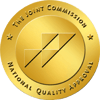The AA twelve step program is a system of recovery from alcoholism that includes both personal and spiritual components. The first step is admitting that you are powerless over your addiction and that your life has become unmanageable. From there, you work through the remaining eleven steps which include taking a moral inventory, making amends, and learning to live a meaningful life. This program has helped millions of people worldwide recover from alcoholism and achieve sobriety.
 The 12 steps of Alcoholics Anonymous
The 12 steps of Alcoholics Anonymous
The AA 12 steps are a set of guiding principles that describe how to achieve sobriety and maintain recovery from alcoholism. The steps were originally developed by the founders of Alcoholics Anonymous, Bill Wilson and Dr. Bob Smith.
The 12 steps have since been adopted by many other recovery programs, including Narcotics Anonymous, Al-Anon, and Codependents Anonymous. While each program may have slight variations on the exact wording of the steps, the overall message is the same: sobriety is possible, but it takes hard work and commitment.
- We admitted we were powerless over alcohol—that our lives had become unmanageable.
- We came to believe that a Power greater than ourselves could restore us to sanity.
- We made a decision to turn our will and our lives over to the care of God as we understood Him.
- We made a searching and fearless moral inventory of ourselves.
- We admitted to God, to ourselves, and to another human being the exact nature of our wrongs.
- We were entirely ready to have God remove all these defects of character.
- We humbly asked Him to remove our shortcomings.
- We made a list of all persons we had harmed and became willing to make amends to them all.
- We made direct amends to such people wherever possible, except when to do so would injure them or others.
- We continued to take personal inventory and when we were wrong promptly admitted it.
- We sought through prayer and meditation to improve our conscious contact with God as we understood Him, praying only for knowledge of His will for us and the power to carry that out.
- Having had a spiritual awakening as the result of these steps, we tried to carry this message to alcoholics, and to practice these principles in all our affairs.
The 12 steps of Alcoholics Anonymous have been criticized by some as being too Christian-centric, and not inclusive of other faiths or belief systems. However, the principles of the steps can be applied to any religion or belief system.
Why does AA work?
There's no single answer to this question, as AA's effectiveness depends on a variety of factors. However, some experts believe that the program works by helping individuals to develop a better sense of personal accountability and responsibility, providing them with support and structure, and teaching them how to cope with difficult emotions.
Additionally, the camaraderie and sense of community that are central to AA can also be helpful in motivating people to stay sober. Ultimately, though, it is up to each individual to decide whether or not AA is right for them.
Looking around at the faces in the room, I notice a certain amount of peace. These people don’t look strung out. They don’t look desperate. Nobody has tremors that I can see. We join hands and repeat the serenity prayer followed by a chant, ‘Keep coming back, it works if you work it, so work it you’re worth it.’ My feeling at the end is that AA is utterly amazing. Complete strangers getting together in rooms at all hours and saying things that are so personal, so incredibly intimate. This is the kind of stuff that happens in a relationship after a few months. But people here open up right away, with everyone. It’s like some sort of love affair, stripped of the courtship phase. I feel bathed in safety. I feel like I have this secret place I can go and say anything in the world, about anything I feel, and it’s okay.
Augusten Burroughs, Dry, A Memoir
How long do I need AA?
The answer to this question is not simple, as there is no one-size-fits-all answer. The length of time someone needs to stay in AA will vary depending on the individual's situation. Some people may need to stay in AA for their entire lives, while others may find that they only need to attend meetings for a short period of time. There is no wrong or right answer - it is up to the individual to decide what works best for them. But another question is, “How long do I need friendship, support, and encouragement?” For most of us, no matter our issues, that answer is forever because these are great things to have and why would we deprive ourselves of them?
Where can I find an AA meeting?
If you're looking for an AA meeting near you, there are a few ways to find one. The easiest way is to use the AA website's meeting locator tool. Simply enter your location and the site will return a list of nearby meetings.
Another option is to use a search engine like Google or Bing. Just type in "AA meetings near me" and you'll get a list of results. Finally, you can always ask your local church or community center for recommendations.
No matter which method you choose, make sure to call the contact person listed for each meeting before attending. This will ensure that the meeting is still active and that it's a good fit for your needs.
If you are struggling with alcoholism, know that you are not alone. There are many people who have been where you are and have recovered using the AA 12 steps. Seek out a local AA meeting or find an online AA group that can offer support and guidance on your journey to sobriety.
Soberman's Estate is a residential men's addiction treatment center that provides discreet, individualized, sophisticated recovery and wellness services for adult men that want to recover from substance use disorders, and or other behavioral issues such as trauma, anxiety, depression, stress, or other addictions.





